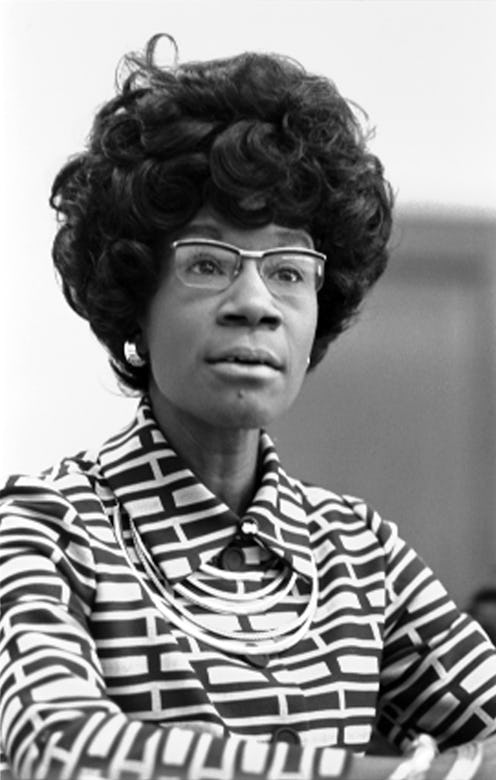News
Hillary Is Hardly The First Woman To Run For Prez

Hillary Clinton has just announced her candidacy for the 2016 Democratic presidential nomination — a nomination that slipped through her fingers back in 2008 and into the hands of one Barack Obama. We all know that tale, and Obama's clinching of the Democratic nomination was historic in its own right. Eight years after that historic primary, we may be looking at yet another round of history-making and boundary-breaking, with Clinton poised to become the first woman to win a major presidential nomination.
Before we turn the spotlight onto Clinton, let's take a step back and flip through the history books — or maybe our feminist history books, as the role of women in politics, particularly at the presidential level, doesn't get too much love on the AP US History tests. Although we have yet to see a woman win the presidential nomination for a major political party, women politicians have had a long history of success in minor political parties. In fact, while the 2012 presidential race seemed like an all-male match-up, there were three women also running on a presidential ticket: Dr. Jill Stein for the Green Party; Peta Lindsay of the Party for Socialism and Liberation; and Roseanne Barr for the Peace & Freedom Party.
The efforts of women among America's minor political parties don't garner too much attention, presumably because they're not regarded as viable candidates in our historically two-party system. Yet these women have set the stage for Clinton more than a century ago.
Of course, the push for women on a presidential ticket began with the women's suffrage movement, when suffragist Victoria Woodhull officially became the first female candidate for U.S. president in 1872 — nearly 50 years before American women received the right to vote. A member of the Equal Rights Party, Woodhull was nominated for the ticket alongside abolitionist Frederick Douglass, who was voted in as her running mate.
While Woodhull was a popular figure among suffragists and social reformers, it's unclear how well she did during the 1872 election with meager campaign funds and a passionate but disenfranchised voting base. Woodhull's female supporters obviously couldn't cast their votes for her — nor could she take a trip into the voting booth while winking at the reporters outside — and some historians believe the votes she did received were tossed out. Her popular votes were never counted, cementing her electoral vote count at "zero."
Woodhull did, however, promote a pro-women platform that eerily overlaps with issues we could expect to see from Clinton and her contemporary female peers. An advocate of "free love," Woodhull supported a person's right to marry or divorce whomever she wanted without interference from the government, as well as autonomy and choice when it came to bearing and raising children.
In the century following Woodhull's historic nomination, dozens of female politicians have stepped up to carve out a space for themselves and their views, which ranged from voting rights to birth control access to social reforms such as affordable housing. Following Woodhull's shaky 1872 bid, suffragist Belva Lockwood ran for president on the Equal Rights Party ticket in 1884 and 1888 (A trailblazer for female lawyers, Lockwood was also the first woman to practice before the Supreme Court). Despite Woodhull's defiant run in 1872, Lockwood is often considered the first woman to officially run for president, with her New York Times obituary proudly making that claim in 1917.
"I have never stopped fighting," Lockwood had said about her trajectory from schoolteacher to lawyer to presidential nominee. "My cause was the cause of thousands of women."
More than 30 women have run for president between 1872 and 2012 on a minor party ticket, including the Communist Party and the Workers World Party. There was also the notorious bid by Ellen McCormack in 1980 on the Right to Life Party ticket, which, as its name implies, focused on outlawing abortion.
But perhaps the biggest game-changer for female candidates came in 1964, when Margaret Chase Smith became the first woman to be placed on the nomination ballot at a major party's presidential convention. Smith, a Republican and fierce opponent of Communism, didn't win the nomination — that went to Sen. Barry Goldwater — but she made an admirable showing; at the Republican National Convention in San Francisco that summer, Smith came in fifth. In a show of sociopolitical defiance, Smith also refused to remove her name from the final ballot, which meant that she technically came in second.
Less than 10 years after Smith's determined run in the Republican primaries, Shirley Chisholm, Bella Abzug and Patsy Mink attempted to win the Democratic presidential nomination in 1972 to challenge sitting President Richard Nixon at the polls. Chisholm was the first African-American woman to run for president — and the only black woman to ever run on a major party ticket. Mink, a Japanese-American and the first Asian-American woman elected to Congress, also strengthened the presence of women of color on the national stage.
Images: Wikimedia Commons (2)